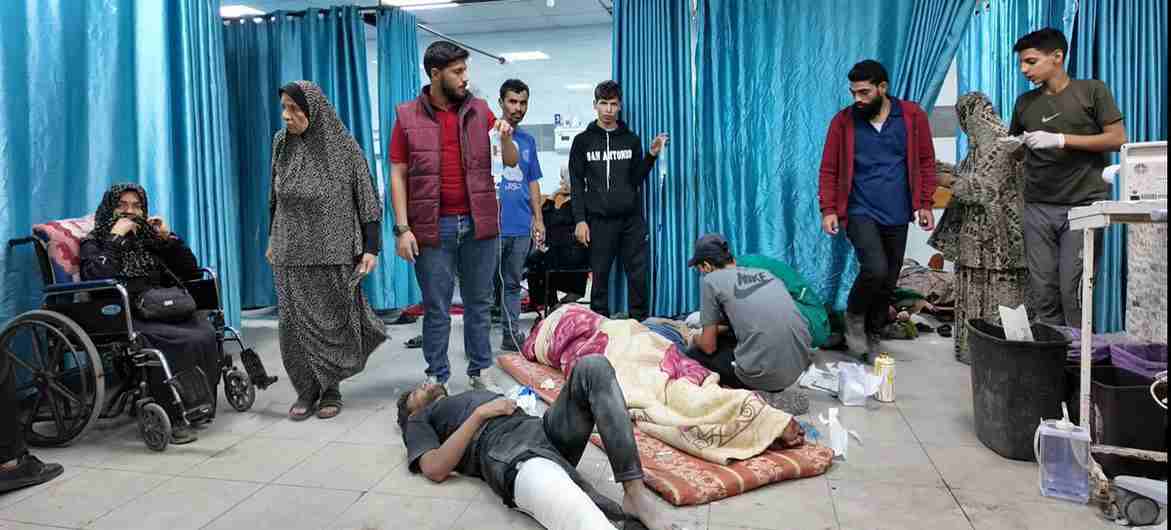
The Israeli bombardment to Al-Ahli, a hospital in the city of Gaza, has put even more pressure on the remaining health units in the occupied Palestinian territory, where the delivery of help and the movement of humanitarian workers are highly restricted by the Israeli authorities.
On Monday, the World Health Organization (WHO) representative, Rik Peeperkorn, told UN News about the desperate conditions he saw in Al-Ahli before the attack and the severe restriction of movement that is preventing thousands of people from being evacuated for medical treatment outside Gaza.
“I was in Gaza a few weeks ago and went out in early March, just before the help blockade starts and the attacks start over.
When I was there, during the ceasefire, we were organizing vaccinations against polio and medical evacuations (MEDEVACS), and stocking essential medical medicines and supplies. This was also the only time there were adequate food stocks in Gaza.
There was almost a radius of hope in all the misery. Places where I had already been, such as Rafah, in the south, or Jabalia, in the north, were completely devastated vacant lots, but people, including our own team, were going back to their homes, trying to fix their homes destroyed or building makeshift camps. We saw the commercial activities being resumed and a variety of food options.
But then, of course, with the blockade, food, water and essential medicines began to scarce very quickly. Although we have fueled ourselves during ceasefire, we now have critical stocks and it is difficult to keep hospitals, even partially open.
We are completely without therapeutic milk, antibiotics to treat severe infections, trauma painkillers, insulin, replacement parts for ambulances, oxygen tanks, etc.
Medical Evacuation of Gaza Patients | File
A few days before the attack on Al Ahli, a medical expert told us that the hospital was already crowded because it is one of the main northern hospitals for trauma patients [aqueles que sofreram ferimentos graves e fatais] and that they were forced to perform surgeries in sterile questionable conditions.
They lacked aprons, sufficient surgical fields or gloves. They even had to wear the same gloves from one operation to another. Due to the lack of equipment, surgeries could take hours, increasing the risk of permanent disability or amputations.
The employees asked us for the supplies we have in our two warehouses in southern Gaza, but did not leave us.
This humanitarian blockage needs to be raised, and we need to go back to an agreement that allows us to have humanitarian corridors throughout the Gaza Strip, without being denied or late entry. Even in times of war, humanitarian supplies must be allowed and humanitarian workers must be able to do their work.
Today I talked to my team leaders in Gaza, who were at Al-Shifa Hospital. Al-Shifa, now the main operating room and northern trauma center, is completely overloaded and without sufficient support. We are analyzing the possibility of bringing some patients from al-Shifa to the south, but everything is complex.
Very few patients have managed to leave Gaza to receive the urgent care they need so much. We estimate that up to 12,000 patients need medical evacuation, but since the blockade we can only evacuate 121 people, including 73 children.
“We ask for the immediate resumption of medical evacuation by all possible routes. This should happen now.”
Originally published by UN News on 14/04/2025
Source: https://www.ocafezinho.com/2025/04/15/milhares-de-pacientes-de-gaza-aguardam-evacuacao-medica-urgente/

